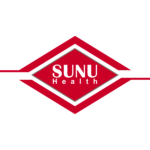
It did not indicate what would happen to media organisations that did not observe the ban.
The move comes after authorities on Wednesday ordered the indefinite suspension of all political activities, saying it was needed to maintain public order.
Government spokesman Colonel Abdoulaye Maiga blamed the suspension of party activities on the “sterile discussions” during an attempt at national dialogue earlier this year.
“Subversive acts by political parties are multiplying,” according to a decree read out to reporters by Maiga.
He added that the fight against armed jihadist and Tuareg separatist groups could not be reconciled by “sterile political debates”.
The latest crackdown has prompted numerous comments on social media but there was little reaction from parties or leading figures, already largely silenced.
Moussa Mara, who was prime minister from 2014 until 2015, urged authorities to reverse the decision, calling it a “major step backwards” that “does not promise a peaceful future”.
The president of the Convergence for the Development of Mali party, Housseini Amion Guindo, called for “civil disobedience until the fall of the illegal and illegitimate regime… due in particular to its inability to satisfy the essential needs of Malians”.
Under pressure from regional bloc ECOWAS, the junta had promised to hold elections and hand power back to civilians by March 26, 2024, but no vote was organised.
The United Nations on Thursday voiced alarm at the junta’s move to suspend political activities.
“We are deeply concerned by the decree suspending the activities of political parties and other civic associations,” the UN rights office said on X, formerly Twitter, insisting that “it must be immediately repealed”.
US State Department spokesman Matthew Miller hit out at the move and called on Mali to hold elections.
“Freedom of expression and freedom of association are critical to an open society,” Miller said.
“We call on Mali’s transition government to honour its commitments to its citizens and hold free and fair elections.”
Press freedom group Reporters Without Borders decried the media ban as “a censorship measure that is part of the continuum of muzzling of information” under the junta.
Mali’s Maison de la Presse, a non-governmental umbrella group speaking on behalf of part of the media, called on the media “not to submit to the orders” of the communication authority.
Since August 2020, Mali’s opposition has been largely muzzled by legal woes, the dissolution of organisations, restrictions on press freedom and calls for national unity.
But in a rare joint statement on March 31, several political parties and civil groups decried the “legal and institutional vacuum” left by the failure to hand back power to civilians on March 26.
They called for a “rapid and inclusive dialogue” to ensure that the presidential election is held “as soon as possible”.
In a separate statement on the same day, a group of human rights organisations said Mali had “reached an impasse” and it was time for the military “to return to the barracks”.
Since seizing power in 2020, the junta has ended several international alliances, including with the European Union and former colonial power France, and instead fostered closer ties with Russia.
The military government last year ordered the withdrawal of the UN stabilisation mission MINUSMA, and in January ended a 2015 peace agreement with separatist groups in the north.
The worsening security situation in Mali has also been compounded by a humanitarian and political crisis.
Neighbouring Sahel states Burkina Faso and Niger also underwent military coups in 2022 and 2023 respectively.
The three countries have all pledged to leave ECOWAS in favour of their own Sahel alliance.
AFP













